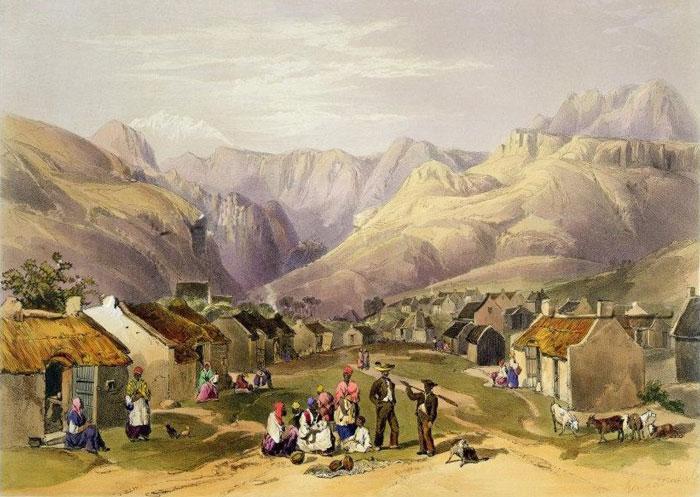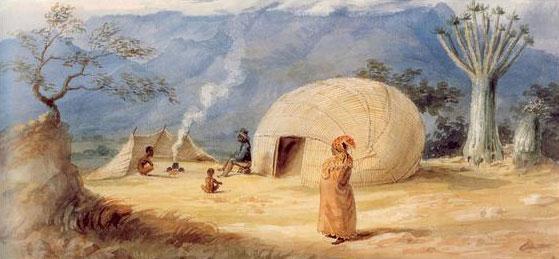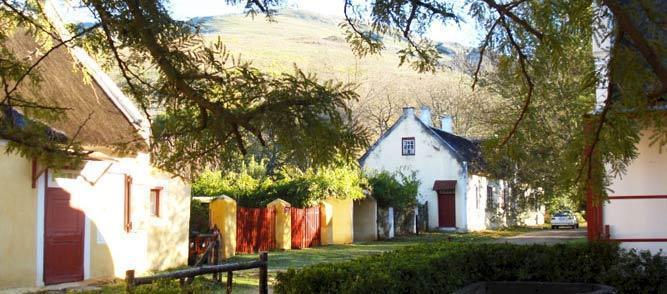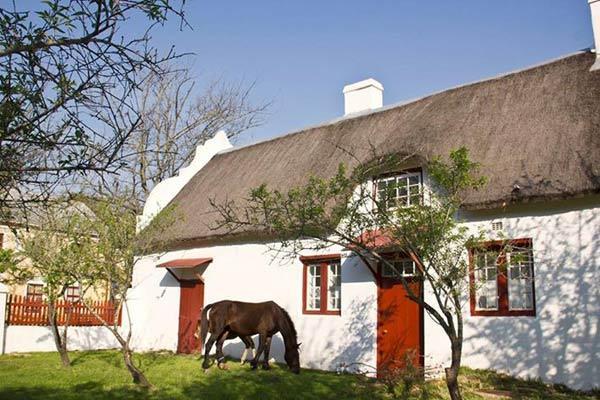Genadendal - A small village with a mission in South Africa
Georg Schmidt, a German missionary from United Brethren (Moravian Church), founded the first mission station in the Baviaanskloof (today known as Genadendal) in 1738.

When he arrived in South Africa, Schmidt found that the Khoi were a poor and disadvantaged people. Many thought that mission work among the Khoisan (Hottentots) was attempting the impossible, but in spite of this Schmidt prevailed. He became acquainted with an impoverished and dispersed Khoi people who were practically on the threshold of complete extinction. Apart from the few Kraals, which still remained, there were already thirteen farms in the vicinity of Baviaans Kloof. Within a short while Schmidt formed a small Christian congregation. He taught the Khoi to read and write, but when he began to baptise his converts there was great dissatisfaction among the Cape Dutch Reformed Church clergy. According to them, Schmidt was not an ordained minister and as such, was not permitted to administer the sacraments. Consequently, he had to abandon his work, and in 1744, after seven years at Baviaans Kloof, he left the country.
When he arrived in South Africa, Schmidt found that the Khoi were a poor and disadvantaged people. He started teaching them to read and write and preached the Gospel to them. But the Cape dominees, steeped in the traditions of the Dutch Reformed Church, were not impressed when he started baptising his converts. In 1744 he returned to Germany.

The work was resumed in 1792 when three other missionaries were sent out to Baviaanskloof. When they arrived at the mission station, Marsveld, Kühnel and Schwinn found the ruins of Schmidt’s house and garden. Near a pear tree that had been planted by Schmidt decades ago, they encountered an old woman, one of Schmidt’s converts who, although virtually blind, still regularly held church services for the congregation under the pear tree by praying and reading from the Bible. She handed the missionaries a pocket Bible in a small leather bag. Schmidt had given it to her years before. Soon, the mission station was on its way to revival. At some stage, opposition was encountered from the Stellenbosch church, which, among other things, prohibited the ringing of the church bell because – so they said - the ringing disturbed the Stellenbosch people. Some of the illiterate Strandveld farmers also tried to interfere with the work at the mission station, because they resented the fact that the Khoi-Khoin enjoyed the privilege of being educated. Many of them had also lost farm labourers to the mission station.

The number of residents increased gradually. During a visit to the mission station in 1806, Governor Janssens changed its name to Genadendal (meaning Valley of Grace). The residents were taught many different trades. The well-known herneuter knives and the furniture manufactured there were much sought after. The teachers’ training college, the first in the country, was built in 1838. Today the museum is housed in this building.

Over the years, the missionaries have really exerted themselves to help create employment. The print shop at the mission station is one of the oldest in the country and is still churning out printed material. Genadendal has a large primary and high school with a spacious hostel. Pupils come from many other towns to complete their schooling at Genadendal. The town has a good library. In 1980, the church grounds with their historical buildings were declared national monuments.
Call us and schedule your listing today! Contact Us
Copyright © 2025 Hermanus Online Magazine. Web Development by Jaydee media.
